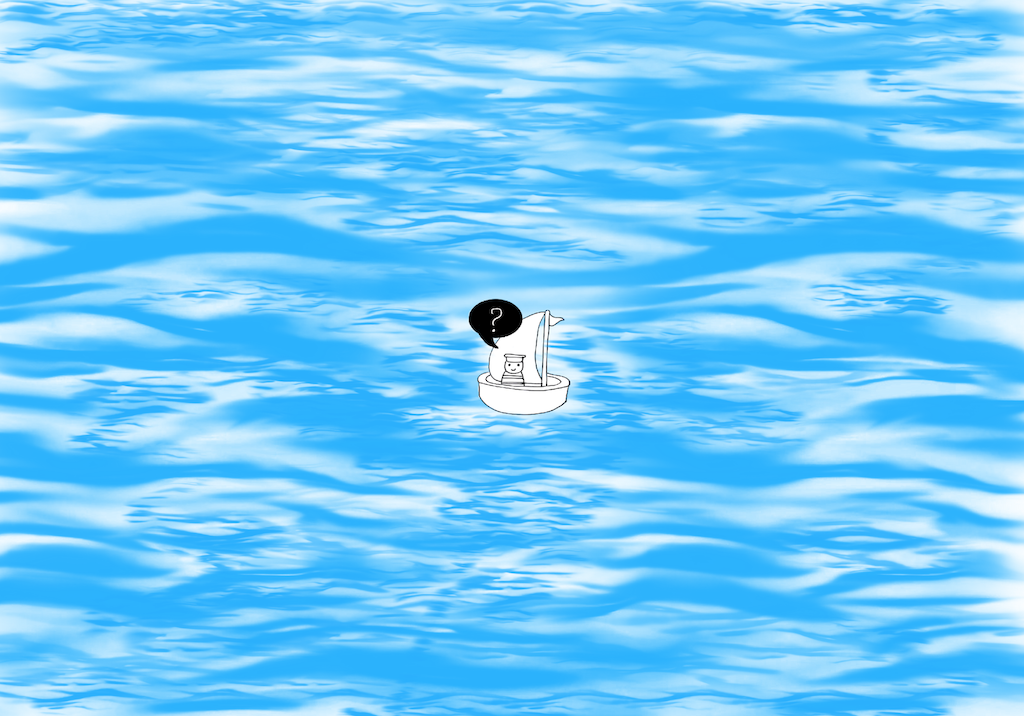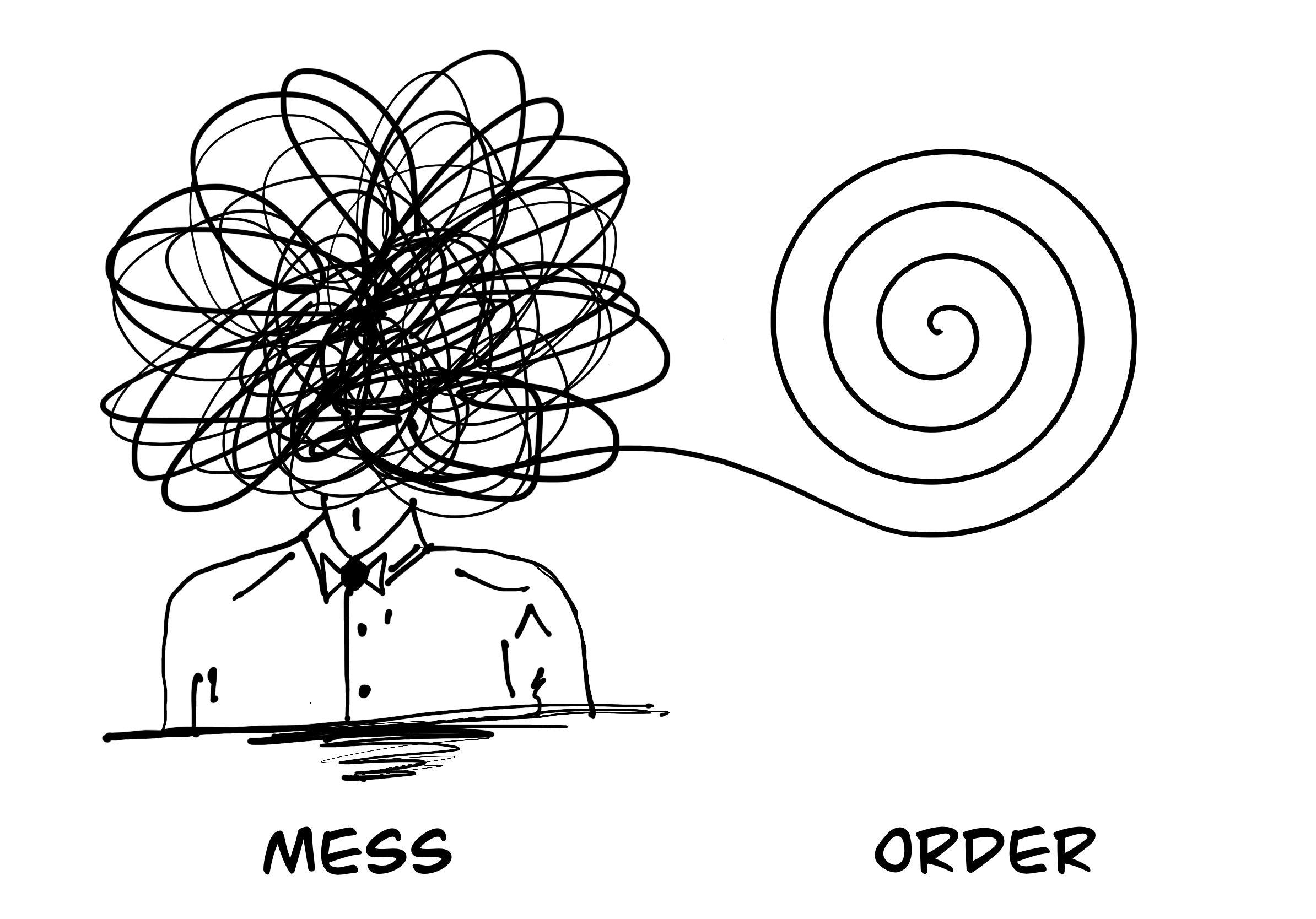How to navigate life
comments
For the last couple of days, I’ve been wrapping my head around how to wisely use the time and energy we’ve been all given.
Every day, people make thousands of decisions and take the same amount of action. But we’re so much immersed in a daily routine that rarely we ask ourselves – where do we actually want to get, and do our actions bring us closer to the goal?
The vast majority of people I know have no idea where they go – they’ve lost direction. Yet their engines are running at full power, wasting tons of energy, bringing them nowhere or in the complete opposite of the desired direction.

No wind blows in favor of a ship without direction.
In this unusual post, I’ll take the courage to describe a simple model for navigating a complex thing called life. I’ll give you direction and a working compass that has been helping me to stay on track for years. Enjoy!
What every human actually seeks and needs is reaching and maintaining peace. Even those living at the bottom of the bottle search for peace. They’re just searching in the wrong place.
Peace is a state of complete congruence and harmony with the current state of affairs, with what you have now and what you don’t1. This is not a novel idea. For example, in both Buddhism and Hinduism, peace and liberation is central concept and the utmost aim of human life.
Simple self-test questions:
- Do you want to change something in your life?
- Do you feel your life is so wonderful as if you had won a lottery?
To figure out how to reach peace, we can invert the question and instead figure out what peace is not. Peace is not anxiety. Lack of anxiety is peace. Therefore we get closer to peace by getting rid of anxiety.
More peace = less anxiety.
To measure our progress towards peace, we should know how to measure anxiety. How do we do this? It’s best done via continuously monitoring and noticing how you feel. Before you learn to do this continuously, you should at least learn to do it on a daily basis. There is a tool for that – it’s called Mindfulness Meditation.

Through deliberate meditation practice, you’ll learn how to gauge your level of anxiety and whether your actions (or inaction) are moving you in the right direction – the direction of peace. Moreover, the sources of your anxiety will soon begin to pop up in your mind. Let’s call them unresolved conflicts.
A simple act of watching your unresolved conflicts without thinking2 or doing anything about them has a calming and liberating effect.
Here is why:
- The more time you spend contemplating the conflict, the less special it begins to appear to us. This way, even the most pressing conflicts lose weight and you become less occupied by it.
- Watching a “raw” problem as it is without all the baggage attached by judgement and rationalization, you see the problem clearly, all the way down to the essence and to the root cause.
- Because you’re spending time inside your mind and seeking the answers within, you’re slowly but surely discovering your true self and solutions that work best for you, not for Elon Musk, a friend you admire, your mom, or the whole world. You have to search inside yourself.
- Unresolved conflicts – small and big – tend to stick together and create one hell of a conflict with no clear boundaries. As you continuously process the conflict backlog, some conflicts lose meaning and disappear, some lose weight, some detach from the large cloud and obtain a distinct shape and boundary. With every meditation, the conflict backlog gets smaller. And each individual conflict becomes small and obvious enough for you to deal with.
I don’t want to say it’s simple. Quite opposite. Removing all the “noise” and distractions, you’ve got nothing left to do but face your real demons.

⚠️ Remark: some activities like walking in nature can help you enter a meditative state. As much as I love hiking, I don’t think it can replace mindfulness meditation – a deliberate training for your mind. So, hiking and other activities can be complementary, not substitute activities.
To summarize, here is the process:
- You want peace.
- Peace is the lack of anxiety.
- Anxiety comes from unresolved conflicts.
- Meditation reveals deep unresolved conflicts and their true nature.
- Then you work on resolving conflicts by trying to understand3 them better, letting them go4, or by taking action5.
- Observe and measure6 your level of anxiety to see if your actions really bring you closer to #1 – peace.
- Repeat.
This simple high-level framework for understanding and navigating life has helped me discover my true self, make tough and sometimes unpopular decisions, and stay on track in the age of noise, opinions, and social media.
My journey towards inner peace is still in progress. I hope your tomorrow will be peaceful, too. Good luck!
F.A.Q.
1. I don’t agree that we should minimize anxiety and maximize peace. Anxiety is sometimes good too. It means you care for something.
-
When you have peace (tranquility), you can still care about something (e.g. work) or someone (beloved ones). With peace in heart, the end result is usually better.
-
Anxiety is an internal conflict. Living with an internal conflict is not healthy, and rarely produces good results. But anxiety is good in the sense that it indicates an unresolved conflict.
-
Driven by anxiety, you identify its source, and resolve it either by 1) understanding it better 2) letting it go 3) doing something about it.
-
Finally, when the internal conflict is gone, you reach a state of peace and tranquility, arriving to point 1.
-
There are two sources of unhappiness: the first is when you don’t have something you want; the second is when you have something you don’t want. ↩
-
“There is nothing either good or bad but thinking makes it so.” — Shakespeare ↩
-
Conflict is often caused by our ignorance or misunderstanding of the problem. That’s why gaining knowledge, perspective, and understanding of the conflict area can be liberating. Education is freedom. ↩
-
When we can’t change the situation, we can change our attitude. For example, you can stop giving a fuck about something – like politics or someone’s opinion. You can also reduce the number of fucks given – e.g. by checking social media less often, moderating the intake. Or you can get your hormones in order by boosting testosterone or Vitamin D level. That will undoubtedly change your perception of the world. ↩
-
Notice that peace doesn’t necessarily mean inaction or leaving the material world for the Himalayas. Our journey towards peace lies through understanding and mastering ourselves. No man is free who is not a master of himself. To master ourselves, we need to do both internal work and external work. ↩
-
If you’re a metric and data fan, you can rate your level of anxiety every day from 1 to 10. Then you can analyze that data and find correlation with your daily activity. For example, I once subscribed to a YouTube channel about stocks and my anxiety skyrocketed (which led to some dumb decisions). I unsubscribed. ↩
